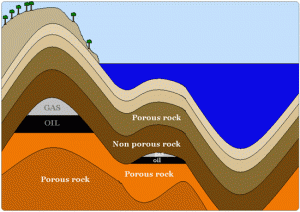
GreenDustries is thrilled with the new policy at Georgia-Pacific that increases protection for millions of acres of the South’s natural hardwood forests. It lets us know that others in industry, like us, believe we must rein in the pillaging of forests to save tomorrow’s forests today – and it is a giant leap in the battle toward understanding of the important role forests play in our planet’s environment.
What the new policy means is that Georgia-Pacific will not purchase trees from Endangered Forests and Special Areas, or from new pine plantations established at the expense of natural hardwood forests. The policy statement was developed in consultation with environmental groups Dogwood Alliance, the Natural Resources Defense Council (NRDC), and Rainforest Action Network.
While GP’s new forest policy applies to all of its operations, as a first step in implementing its commitment on Endangered Forests and Special Areas, GP worked with the environmental groups and scientists to identify 11 Endangered Forests and Special Areas totaling 600,000 acres in the Mid-Atlantic Coastal Eco-Region, as well as 90 million acres of natural hardwood forests in the Southern region. Endangered Forests and Special Areas in other regions are to be mapped in a similar process, over the coming years.
According to the Dogwood Alliance website: “No other U.S. company has demonstrated this level of initiative in mapping unique forests across such a broad region,” said Debbie Hammel, NRDC Senior Resource Specialist... Read more [...]
 With fossil fuels - their costs and their toll on the environment - controlling our lives, GreenDustries thought it would behoove us to take a look at the major forms of fossil fuels and where they come from and the delicate balance of nature that falls in between.
With fossil fuels - their costs and their toll on the environment - controlling our lives, GreenDustries thought it would behoove us to take a look at the major forms of fossil fuels and where they come from and the delicate balance of nature that falls in between.


 If you think it’s good to use trees for fuel, think again. Recently Dogwood Alliance released a paper, “Don’t Log the Forests for the Fuel” which exposed the false environmental and economic benefits of tree-based biofuels.
If you think it’s good to use trees for fuel, think again. Recently Dogwood Alliance released a paper, “Don’t Log the Forests for the Fuel” which exposed the false environmental and economic benefits of tree-based biofuels. 

 Fine-tuning the cosmos. Throughout enlightened Spirituality sites we found some existential thinking on the formation and existence of the universe and while this has nothing to do with food service packaging, we at
Fine-tuning the cosmos. Throughout enlightened Spirituality sites we found some existential thinking on the formation and existence of the universe and while this has nothing to do with food service packaging, we at 


